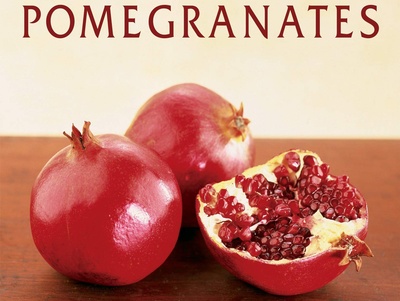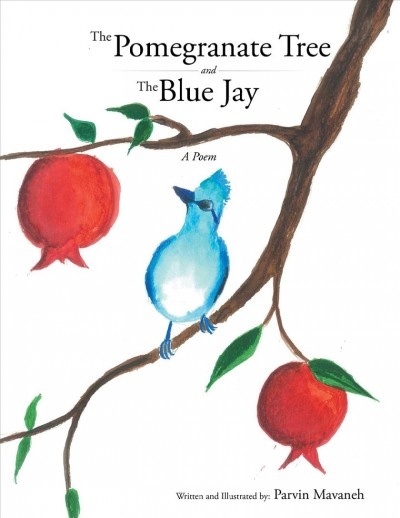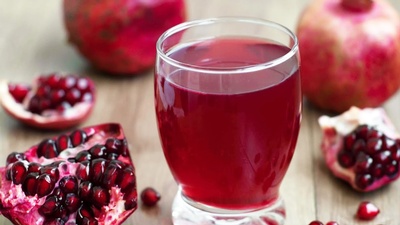Pomegranates! They are unique red fruits filled with many juicy seeds, with a sweet and tart taste. While these fruits grow in warmer climates, they can be available in some local Philly stores in the fall and early winter months.
Some people like to crunch down on and eat the hard seeds that are surrounded by the juicy coating, and some people like to spit the seeds out after enjoying the juice around them. Pomegranates can be made into juice as well as molasses. This fruit can also be transformed into a dried spice called anardana, generally used in Indian and Pakistani cooking.
Pomegranates contain lots of vitamins, minerals, and health properties, such as Vitamin C (helpful for immunity), Vitamin E (beneficial for skin health), Vitamin K (beneficial for blood), potassium (helpful for maintaining healthy blood pressure levels), and antioxidants (beneficial in protecting body from disease). Free Library resources can provide more information about this fruit, such as the book Pomegranates by Ann Kleinberg, available for physical checkout with your library card. Amazing, Edible Seeds: Health-Boosting and Delicious Recipes Using Nature’s Nutritional Powerhouse by Vicki Edgson is a cooking and information reference title available as an ebook.
There are many different ways to open a pomegranate. Learning how, and practicing, can be fun! Here are some short (1 to 3 minute) videos on YouTube with ideas.
- How to section a pomegranate
- How to open a pomegranate in water
- How to remove the seeds of a pomegranate with the back of a spoon
- How to juice a pomegranate by hand with the use of a plastic bag
- How to juice a pomegranate by hand with no additional tools
Nourishing Literacy team member Erik has a special understanding and knowledge of pomegranates, being from Los Angeles, where pomegranates grow in plentiful amounts. Erik’s father even has a pomegranate tree! Thank you Erik, for sharing your experience with pomegranates below.
"Pomegranates remind me of my home in the South Bay area of the Greater Los Angeles area. They are one of my favorite fruits that I enjoy eating in the late summer and early fall months. My father and I enjoy eating them freshly picked off the vine. We usually rip one open and start picking out the seeds, staining our fingers a brilliant ruby red. My mother and I enjoy pressing the juice out of the seeds to make Agua Fresca, while trying our best not to color the rest of the kitchen into a Jackson Pollock painting. This fruit just reminds me of being home because I get to enjoy it surrounded by my parents, which is an occasional opportunity for us since we live on two seperate sides of the country." - Erik, Nourishing Literacy team member
And here's Erik’s recipe for Pomegranate Agua Fresca!
Ingredients
- 1 ½ cups pomegranate seeds
- 4 cups water
- ½ cup simple syrup (1:1 ratio of water and sugar, boiled until sugar dissolves)
Directions
- Place the pomegranate seeds In a large and deep bowl, and using a waffle head potato masher, or another similar piece of equipment, press down on the seeds to juice them.
- Using a fine mesh strainer, strain the freshly pressed juice into a clean pitcher.
- Repeat steps 1 and 2, two more times to squeeze out as much juice from the seeds as possible.
- Add the remaining 4 cups of water and simple syrup to the pitcher and mix to combine. Feel free to adjust the sweetness of the recipe to your desired taste by adding more water or more simple syrup as desired.
- Chill for 4 hours, if possible, before serving.
If interested in making a visual art project inspired by pomegranates, Erik suggests using some of the juice that collects on the cutting board after cutting your pomegranate into sections, to paint with! To explore more around creating your own art supplies from natural materials, you might want to read The Organic Artist: Make Your Own Paper, Pens, Pigments, Prints, and More From Nature by Nick Neddo, available as an ebook to read online with your library card.
If in the mood for some poetry, check out the ebook, The Pomegranate Tree and the Blue Jay by Parvin Mavaneh. And for music to listen to, Pomegranate Tree by Mikis Theodorakis, is available as a part of the Free Library’s Contemporary World Music database.
How might pomegranates be a source of inspiration for you today, either in or out of the kitchen?
Nourishing Literacy offers food, literacy, wellness, and life skills activities and events to community members, with our core audience being youth, teachers, and caregivers. To learn more about the Culinary Literacy Center, please visit our website or connect with us through Instagram and Facebook.
Have a question for Free Library staff? Please submit it to our Ask a Librarian page and receive a response within two business days.



